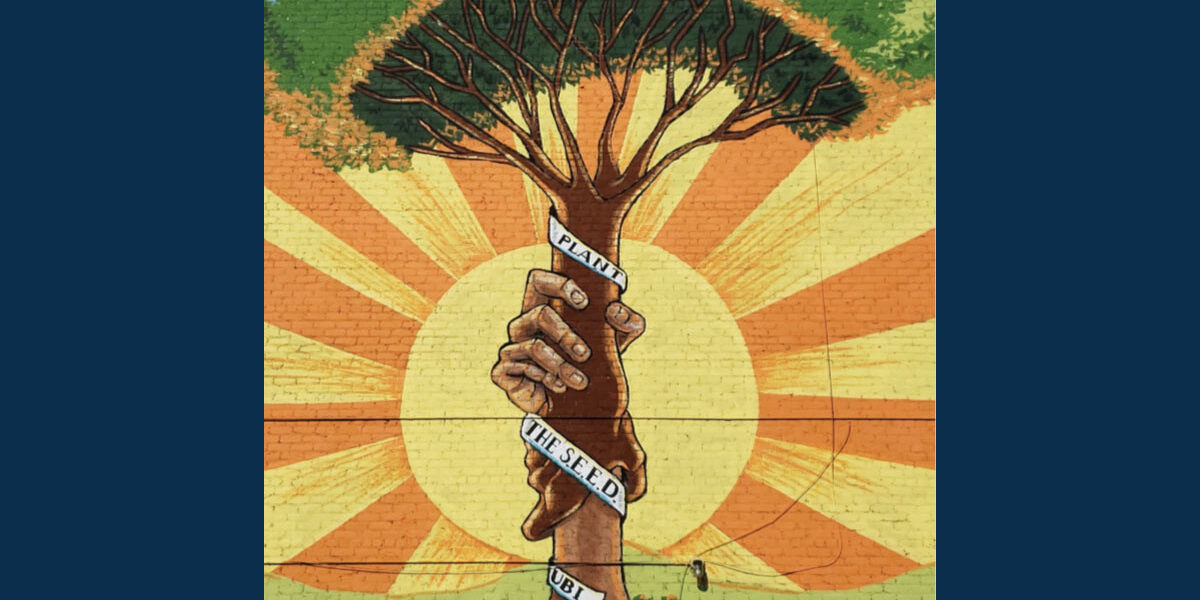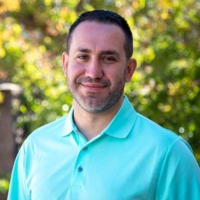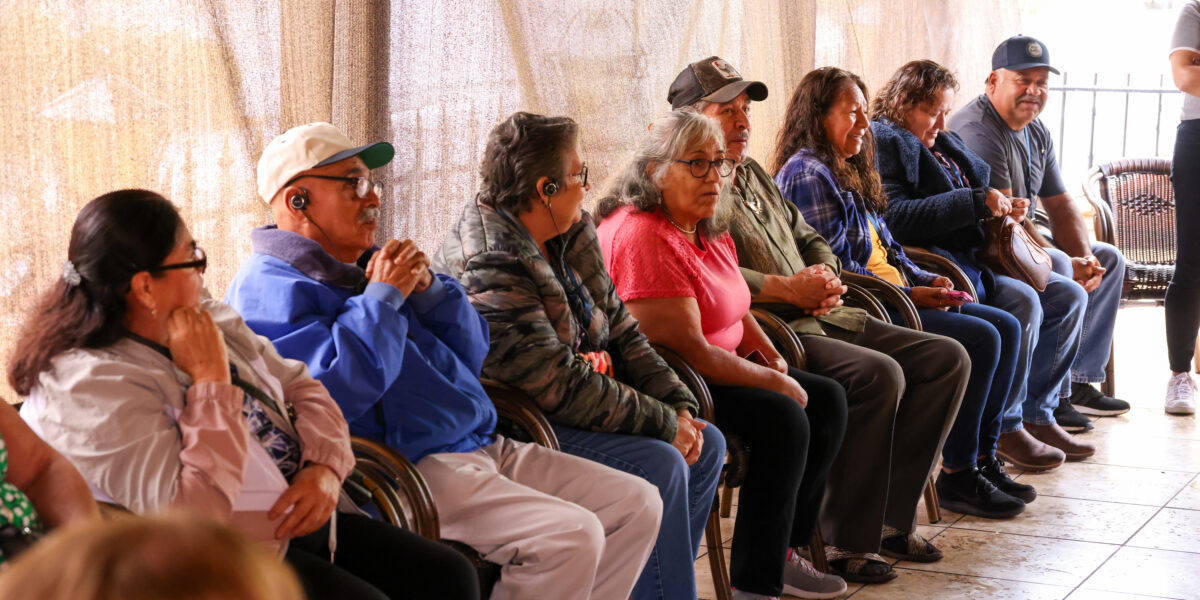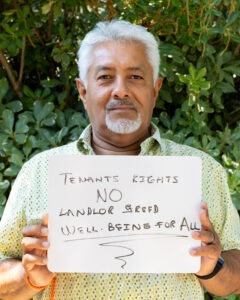

A Foundation for Change
A new pilot program in Healdsburg is testing the community power and individual potential unleashed by Guaranteed Basic Income.
Last September, the Healdsburg City Council allocated funding from the American Rescue Plan Act toward the creation of a universal basic income program. The City of Healdsburg is partnering with Corazón Healdsburg to develop a pilot program. Corazón has been at work on the details of the program with hopes that it will launch in the summer. At its core, the pilot would provide $500 per month for two years to 50 local families, no strings attached.
Universal Basic Income (also known as Guaranteed Basic Income)—as a proposal to address chronic poverty, growing wealth inequality and, increasingly, automation-driven unemployment—places ultimate trust in an individual to know best how to address their needs and move their life forward. As a strategy for tackling poverty and its multiple deleterious impacts including on health, UBI came to mainstream attention with the 2020 presidential campaign of Andrew Yang. Beyond Yang’s presidential bid, the unprecedented disruptions and government-issued relief checks associated with the Covid-19 pandemic have provided further momentum to the idea both nationwide and around the world.
According to Stanford’s Basic Income Lab, the general features of a UBI plan are that it is periodic (rather than one-off), a cash payment, universal (made in the same amount to all individual members of a given population), and unconditional (how the money is best spent is a decision left entirely to the recipient).
The concept is not new. Before Andrew Yang brought it back to mainstream attention, UBI made national headlines during the Civil Rights Movement when Dr. Martin Luther King, Jr. advocated for a guaranteed basic income.
And UBI is more than theoretical, even in the United States. A version of UBI has been a reality in Alaska since 1982. Still closer to home, a 2019 pilot program in Stockton demonstrated positive measurable outcomes from a no-strings-attached $500 monthly stipend, including the improvement of job prospects, financial stability, and overall wellbeing for the program’s extremely-low-income participants.
Proponents of UBI argue for its practical as well as its moral value. Many view it as a way of guaranteeing what the Universal Declaration of Human Rights calls an “adequate standard of living” (i.e., one capable of preserving health and well-being) for all people in a society. But proponents also stress the net benefits and economic returns to society that come from ensuring no one falls too low in socio-economic terms. Proponents point out that a redistribution of a percentage of the country’s wealth would actually pay huge dividends in overall health, efficiency, and economic prosperity, which means such a program also pays for itself.
How would a UBI scheme play out here in northern Sonoma County? We’ll soon find out. Corazón Healdsburg, a human-rights organization that offers programs and services supporting the region’s low-income Latinx families, plans to work with a third-party evaluator to study the impact of its UBI pilot and discern what such a program could mean for the wider community it serves in north county.

“Our mission as an organization is to try to create a just and compassionate society here in northern Sonoma County,” explained Jesús Guzmán, Director of Community Services at Corazón, in a recent phone conversation. “We see a lot of inequality with the families we work with on a regular basis. A lot of our programming is about individual empowerment, offering resources and services so that families can become more self-resilient and self-sustainable. But there are a lot of barriers that people encounter on a day-to-day basis. A universal basic income program can help people get closer to self-sustainability, and address the inequality that exists in our community.”
Individual empowerment is fundamental to GBI, which trusts the individual recipient to apply funds where they are most needed and will do the most good. The program is predicated on the idea that the people closest to the pain are the ones closest to the solutions. Unconditional financial assistance increases the agency of each family to decide what is best for them. Pilot programs like the Stockton Economic Empowerment Demonstration (SEED) program, mentioned above, and another ongoing in Marin County, support that thinking and see it as integral to alleviating poverty and systemic forms of discrimination including racial inequities.
Corazón’s pilot, which proposes to pair the unconditional $500 payments with optional wrap-around services, will center on low-income pregnant mothers and families with young children under the age of five, a potentially highly impactful site of intervention. Research has long demonstrated that investments in families with young children can curb many of the harmful effects of poverty on the early development and therefore life trajectory of a child. These include considerable health effects on parent and child alike. As pointed out by the Abundant Birth Project, a San Francisco UBI pilot focused on expectant mothers in the Black and Pacific Islander communities and one of several programs Corazón has drawn inspiration from, “[t]he strain of ongoing financial insecurity contributes to chronic stress and has a well-documented relationship with premature birth.”
“We are talking about alleviating stress, anxiety, and creating opportunities for learning and self-realization—starting a business, learning English as a second language,” says Guzmán. “We can close that gap of inequality even further by addressing child poverty, having those investments early that can really make a difference over the long term for a child’s life. This is all very much in line with our mission and vision.”
“We know there are serious health repercussions to chronic stress as well as the dietary and other deprivations that can come with living at the margins. And children born into poverty disproportionately face many developmental challenges. We see GBI as a critical upstream approach to achieving greater health outcomes for our extremely-low-income families and greater health equity overall.”
Attention to individual empowerment has gone into the program’s design as well. Guzmán helped lead focus groups and individual interviews over the last several months to gather client input and better align the structure of the UBI pilot with the needs, desires, and ideas in the community. Ensuring that the program is designed in collaboration with the families most impacted was central, he says, to the ethos behind it.
“That was a chance for us to sit down and talk to moms to help inform the program,” he explains. “We talked about the design of the payments, what made the most sense, what the priorities were, and what was going to make the biggest difference. For example, what were the classes or supports or trainings that should be part of the wrap-around support services?”
Guzmán says the moms emphasized mental health services and postpartum support groups, support for children with special needs, and financial literacy, among the services they deemed most useful.
As for the shape of the pilot, including who would qualify and the best payment structure, he notes the focus group provided important suggestions.
“We had originally tried to align with the state initiative around support for pregnant women,” he says. “In the conversation, however, it became clear that that sort of binary didn’t really reflect the fact that a lot of parents who were pregnant may already have young children. The participants wanted us to account for the big gap from birth to daycare where the need is greatest. We walked away thinking it’s pregnant individuals through those early years of a child’s life that are critical. That influenced the payment structure, too. They said, look, if it’s a fixed amount that we’ll be receiving, maybe a smaller monthly payment over a longer period will better get us through that gap of childcare in those early years.”
Devi, a mother of three who has been participating in programs at Corazón for the last three years, was part of the October focus group. “Four or five years ago I stopped working to spend time with my little ones,” explains Devi through a translator. “I have a 14-year-old daughter, a ten-year-old son, and a three-year-old daughter.”
Although Devi may not ultimately be selected to participate in the program, which is considering a random selection via lottery of eligible applicants, she says she felt happy for the families that would be selected, knowing what it’s like to be pregnant while raising young children and knowing this program could be helpful. “Because that was really difficult. I had to stop working. Going back to work means having your child go to daycare, which is really expensive.”
“We’re living in a system that is pushing people down so hard and keeping them so desperate, it’s not just a matter of relieving that stress and providing people with the opportunity to meet basic needs. It’s about unleashing the creative potential that people naturally possess.”
For the Healthcare Foundation, an enthusiastic supporter of Corazón’s new pilot program, UBI is a strategy for improving public health and health equity.
“We know there are serious health repercussions to chronic stress as well as the dietary and other deprivations that can come with living at the margins,” says Executive Director Kim Bender. “And children born into poverty disproportionately face many developmental challenges. We see GBI as a critical upstream approach to achieving greater health outcomes for our extremely-low-income families and greater health equity overall.”
For Devi, a big attraction is the potential that opens when you don’t have to spend all your time worrying about covering the necessaries of life for your family. What becomes possible when you have more stability and certainty in your life? What else might you do with the time and focus you gain?
Devi says that, for her, the first thing would be the opportunity to take ESL classes and trainings like the financial literacy workshop. “I’ve enjoyed those and want to do more,” she says, adding, “Maybe I could start a small business from home. I’d love to be able to do something like that.”
Devi’s aspirations resonate with those of participants in other UBI programs. “In Stockton,” notes Guzmán, “one of the findings was that employment went up for folks who participated, which was maybe counterintuitive given the criticism of some who asserted that a UBI program was going to make people lazy or drop out of the labor market. What they found instead was the opposite, and this has been corroborated by other studies. If you give people the time, space, and opportunity to think of different ways they could invest in themselves, learn and do something that aligns more closely with what they’re really interested in, that is going to lead to more longer-lasting, impactful opportunities for families.”
Ultimately, then, Corazón’s pilot UBI program will be about much more than merely reducing the negative impacts of poverty.
“We’re living in a system that is pushing people down so hard and keeping them so desperate, it’s not just a matter of relieving that stress and providing people with the opportunity to meet basic needs,” says Guzmán. “It’s about unleashing the creative potential that people naturally possess. And that’s good for everybody.”

Related News + Stories
Invest in Our Community
Your support is vital to our collective vision of eliminating health inequities in northern Sonoma County.
Donate



